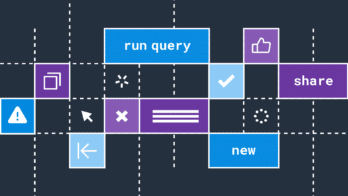Welcome! This will be a semi-regular series, where we answer frequently asked questions in short, digestible bites. Or if you prefer long philosophical essays about the future of observability, go here.
Ten short questions on getting started with Honeycomb
Ask your own questions! Find us as @honeycombio on twitter.
1. Is this a tool for ops and firefighting?
Yes! But not exclusively!
2. Is this a tool for instrumenting your application code?
Sure! But not exclusively! It’s for all these things and more, providing a familiar interface for all your ops, dev, and database needs.
3. Wait, is Honeycomb for developers or operations?
YES, all of those things! It’s a debugging power tool for anyone who needs to ask ad hoc, realtime queries about behavior or events.
4. How can I get data in?
Send JSON to our API, basically. We have lots of open-source wrappers and libs and tailers to get you started.
5. Is it super expensive?
Only if you want it to be. Pricing is based on retention and throughput. With good sampling hygiene, you can control costs at high volume.
6. Don’t you care about how many servers I have?
What’s a server? Just kidding, but no. Pay for what you use. We think the per-server model is archaic and broken.
7. This sounds a lot like Scuba, the Facebook internal observability tool.
Yup! Honeycomb has lots of Scuba DNA. We fell in love with the exploratory model at Facebook, and based early mocks off the whitepaper.
8. This sounds a lot like Splunk, SignalFX, NewRelic, Librato, DataDog, Graphite, ELK, Wavefront, Papertrail, Druid, Prometheus, InfluxDB…
Haha. Well, we’re all using similar words – “realtime”, “exploratory”, “interactive”. But we’re very different. Schedule a demo!
9. Can I play with it somewhere, before importing my own data?
Definitely. We have demo data sets you can play with to see how things work. Just sign up and drop us a line to see our streaming samples.
10. Sorry, I have the attention span of a gnat … how do I ask a question?
Email us at support@honeycomb.io, or tweet to us at @honeycombio on twitter – we’ll respond there and post it here, too!








